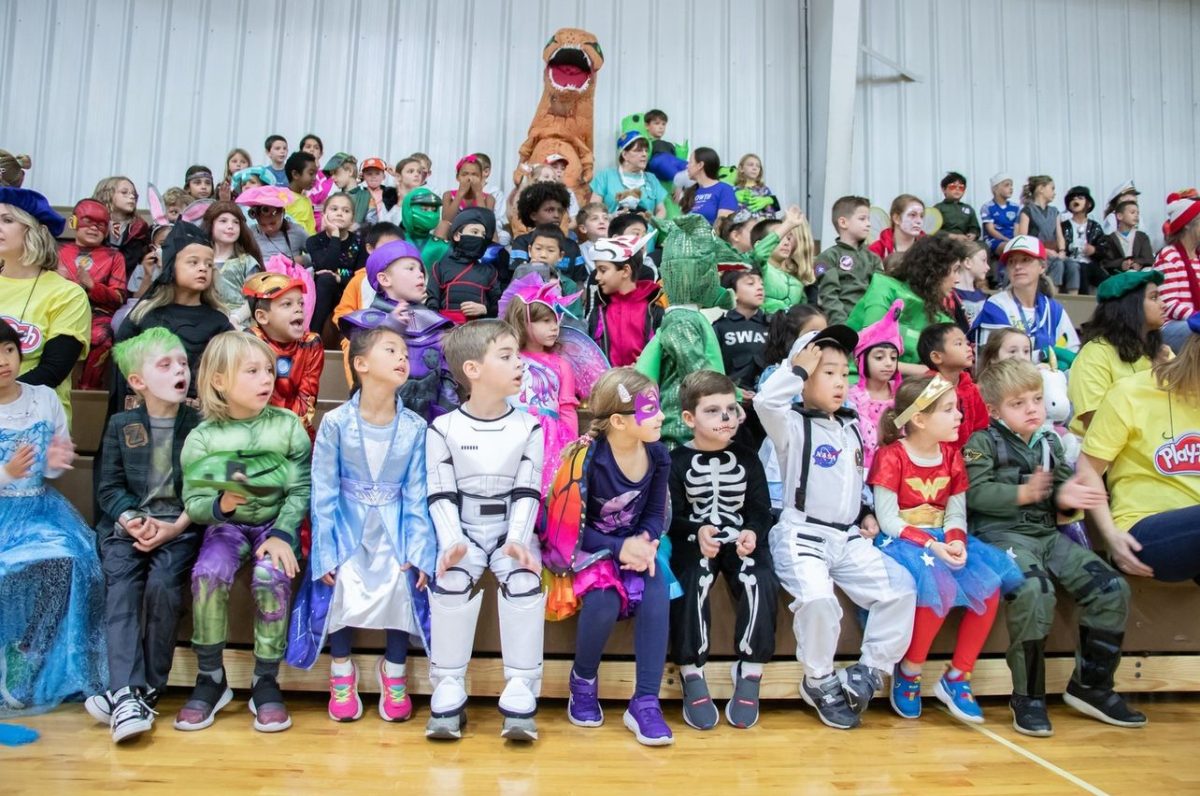A recent Flint Hill graduate, Andrew Doll, was split on what was next. With a degree in psychology, Mr. Doll sat in his 9-5 job in a bank and came to the realization that he wanted to make an impact, while learning more about the world. His search led him to a job as a 3rd grade teacher in a small town in North Honduras called Tella. Mr. Doll described his experiences, stating, “It was hard. You’re going to make mistakes. But I was looking to get out of Northern Virginia. I knew conceptually how privileged we are, but was looking for that exposure, of how I could help people.” With only having taken up to Spanish 3 in current Flint Hill Spanish Teacher Kristin Piazza’s class, Doll recalled being scared of the voyage he began. But what he couldn’t predict was the connection he made with the students, using sports to bridge the gap between languages, and how the experience changed his life’s trajectory.
Each day, during recess, Mr. Doll would introduce the children to games from the U.S., with the students taking a particular liking to basketball. He spent the evenings participating in soccer games his students and other Tella community members invited him to. Doll was not only able to help the children of Tella develop their English, learn in school, and discover basketball, but Doll became immersed in the Honduran culture, causing him to strengthen his Spanish speaking skills. These new friendships made a profound impact, creating a soft spot in Doll’s heart. After a year, Doll returned to our familiar Oakton area and running water but was forever changed. His experiences in Honduras led him to study for his master’s at George Mason in social work, focusing on social change. He studied various topics of philanthropy, but one class that stuck out for him was his immigration policies seminar. Just before graduating, Doll applied and was hired at the CAIR coalition, which has the mission of providing legal representation to asylum seekers in the Washington Metropolitan area.
Immigration is one of the most highly discussed topics throughout the news, but Doll explains that “you hear about immigration all the time. It’s another thing to meet real people living in jail and fully understand their circumstances”. Doll knew he needed to use his background to help the thousands of immigrants in our community and had developed a love for children after his work abroad. These driving principles made Doll the perfect applicant for a job at the Northern Virginia Detention Center, where he worked with detained immigrant minors who were at the maximum level of security after committing crimes. Mr. Doll worked as a case manager, contacting families of unaccompanied minors who had illegally immigrated to the U.S.. Mr. Doll went under immense training, learning code languages and protocols for working in such a high-risk facility.
Each morning began by turning in phones and keys for an alarm to aid in the case of being attacked on site. While Mr. Doll continued to be himself and express compassion to his group of 12 inmates, they knew him as #40, because even sharing his name would put his safety at risk. Staying anonymous became increasingly challenging when #40 received a new inmate, a 16-year-old boy from a small town #40 knew well, Tela. It may seem minor to share a commonality, but when coming in contact with an assassin who had committed countless murders for the gang of MS-13, this could mean everything for #40 or his Hondurian friends. Mr. Doll explained that during his time as #40, “I had a sense of being scared, but then I heard the stories of, for example, how the boy had been abused throughout his childhood in Tella, and the gang took him in and raised him by the age of 8. The background helps us see these people as what they are, people.” The complexity of caring for and raising children who were also felons, and often had never experienced appropriate affection, had obstacles. #40 was able to help children who had faced unthinkable conditions, but also had times where he had to navigate tough situations; One Doll recalled being when a boy confided to him and confessed to an unknown murder.
Doll explained to me how the values and lessons he learned through his time at Flint Hill as a student helped him throughout his career. As students growing up in the digital age, we constantly hear about the current events going on and how lucky we are to have strong resources and a community. Doll told me, “You hear about issues like the immigration system, but knowing people is another thing. It’s another thing to meet people where they are, in their communities and for me- jails. That’s how I learned to understand their circumstances”. By listening to Mr. Doll’s story, I discovered how the events in the news are personal and not as far away from my life as they seem. Mr. Doll was able to help children in need during crucial developmental periods of their lives, making an impact that changed his perspective on others. Today, Doll uses his impressive background and skillset to give back to the Flint Hill community as one of our school counselors. As students, we are beginning to choose our future paths and have the power and opportunity to make a difference in the events changing our world. The first step to change is awareness, and by taking time to explore the experiences of others, whether on a small scale, like throughout the hallways of our high school, or in enormous strides, like Mr. Doll’s, we can grow to create greater change.




